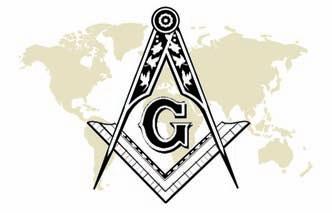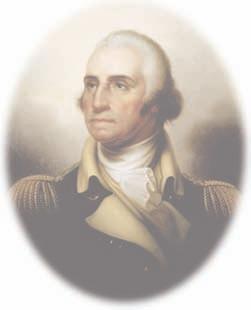A MASONIC MEMORIAL TO A VIRTUOUS MAN
A Masonic Memorial to a Virtuous Man T
his year we celebrate George Washington’s 275th birthday. It’s also the 75th anniversary of the George Washington Masonic National Memorial. Yet 2007 is not simply a convenient reason to celebrate a birthday, remember Washington’s great deeds or visit the Memorial. Rather it is a time to contemplate the Memorial as a symbol of Freemasons’ reverence of Washington and to reexamine its purpose. Since the forming of the Memorial Association in 1910, its mission has changed. Originally organized to create a fireproof building and proper exhibitions gallery for Washington relics owned by Alexandria-Washington Lodge No. 22, the Association soon determined to erect a grand memorial worthy of Washington on nearby Shooters Hill. With ambitious goals and magnificent designs in hand, the Association began fundraising and promotional campaigns. Grand Masters and Association officers spoke and wrote in support of the Memorial. The most forceful voice was Charles H. Callahan, Grand Master of Virginia. He argued that a Memorial was needed not simply to display relics, but to end any doubt that Washington and other patriots were proud Freemasons. More important, a Memorial would demonstrate the strength of modern day Masonry, the beauty of Masonic tenets and the loyalty of Freemasons to “the ideals of Washington and his Masonic compatriots.” The relationship between Washington the man and the Masonic Memorial continued to evolve. At the 1932 Memorial dedication ceremony, Episcopal Bishop and
Mark A. Tabbert,
Past Master
Brother Mason James E. Freeman of the District of Columbia forcefully proclaimed:
“We are met here today not so much to think of Washington the patriot, the soldier, the commanderin-chief and ultimately the president of the republic, as of Washington the high exemplar of those splendid ideals for which this ancient Order stands.” Immediately following Bishop Freeman’s remarks, Past Grand Master Melvin M. Johnson of Massachusetts declared: “George Washington was not great because he was a brother of the Craft. He was great because his natural abilities, willed into action, were guided and inspired by the fundamental principles which Freemasonry inculcates, and which so saturated every fiber of his being that he thought them, spoke them, and lived them.” The Masonic National Memorial, therefore, was not dedicated to Washington because he was a Freemason, but because more than any other American he exemplified what every Freemason ought to labor to be: a virtuous man. In 2006, the Memorial Association reaffirmed this with a new vision statement that declares: “. . . to emulate and promote the virtues, character and vision of George Washington, the Man, the Mason and Father of our Country." But what is meant by Washington’s virtue, character and vision? They are the same that every Mason learns when he takes his obligations, receives the lectures and is raised on the Five Points of Fellowship. These virtues were
GEORGE WASHINGTON LAYING THE CORNERSTONE OF THE NATIONAL CAPITOL, SEPTEMBER 18TH 1793, BY ALLYN COX. PHOTO BY ARTHUR W. PIERSON
The Voice of Freemasonry
17







